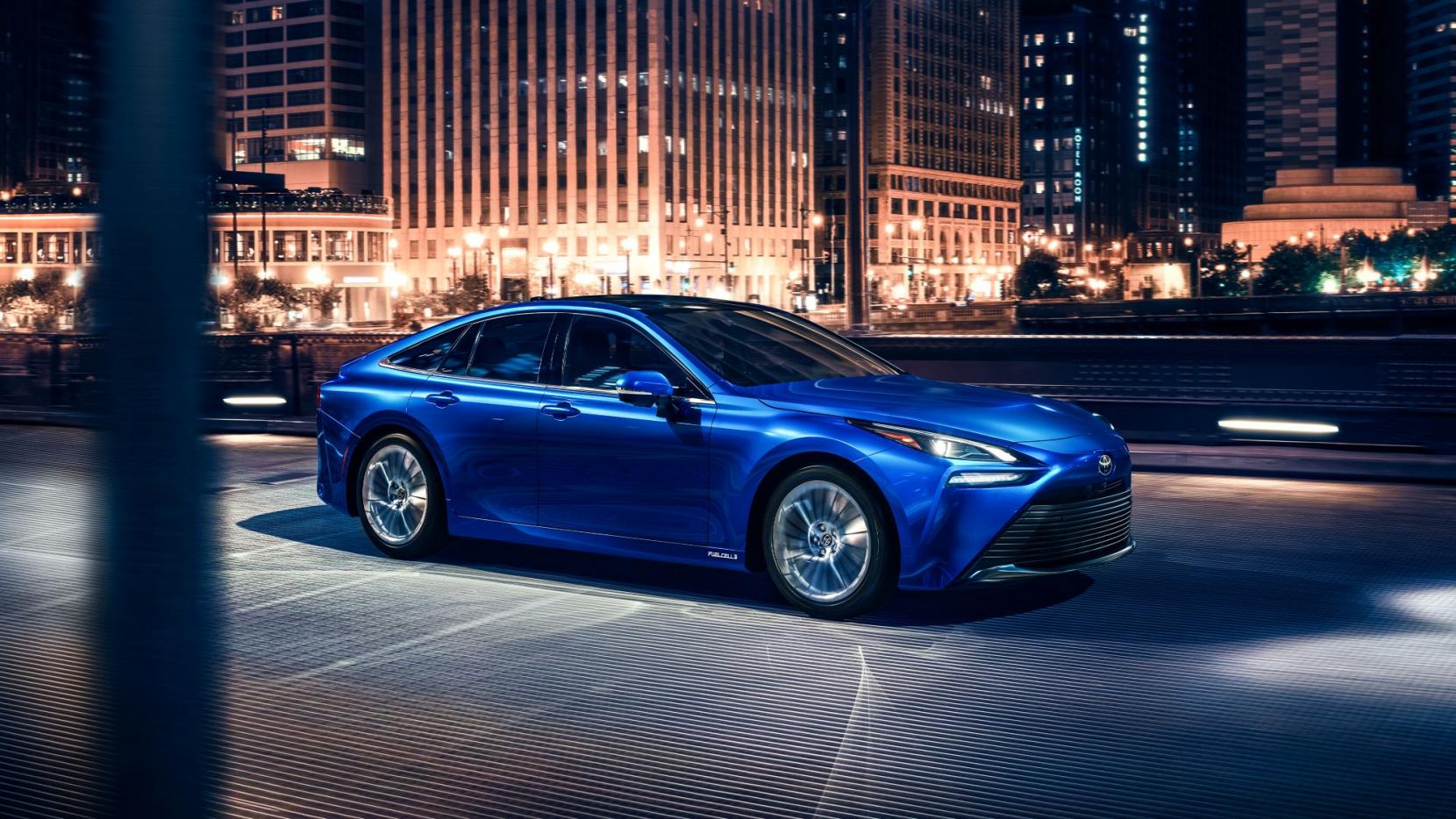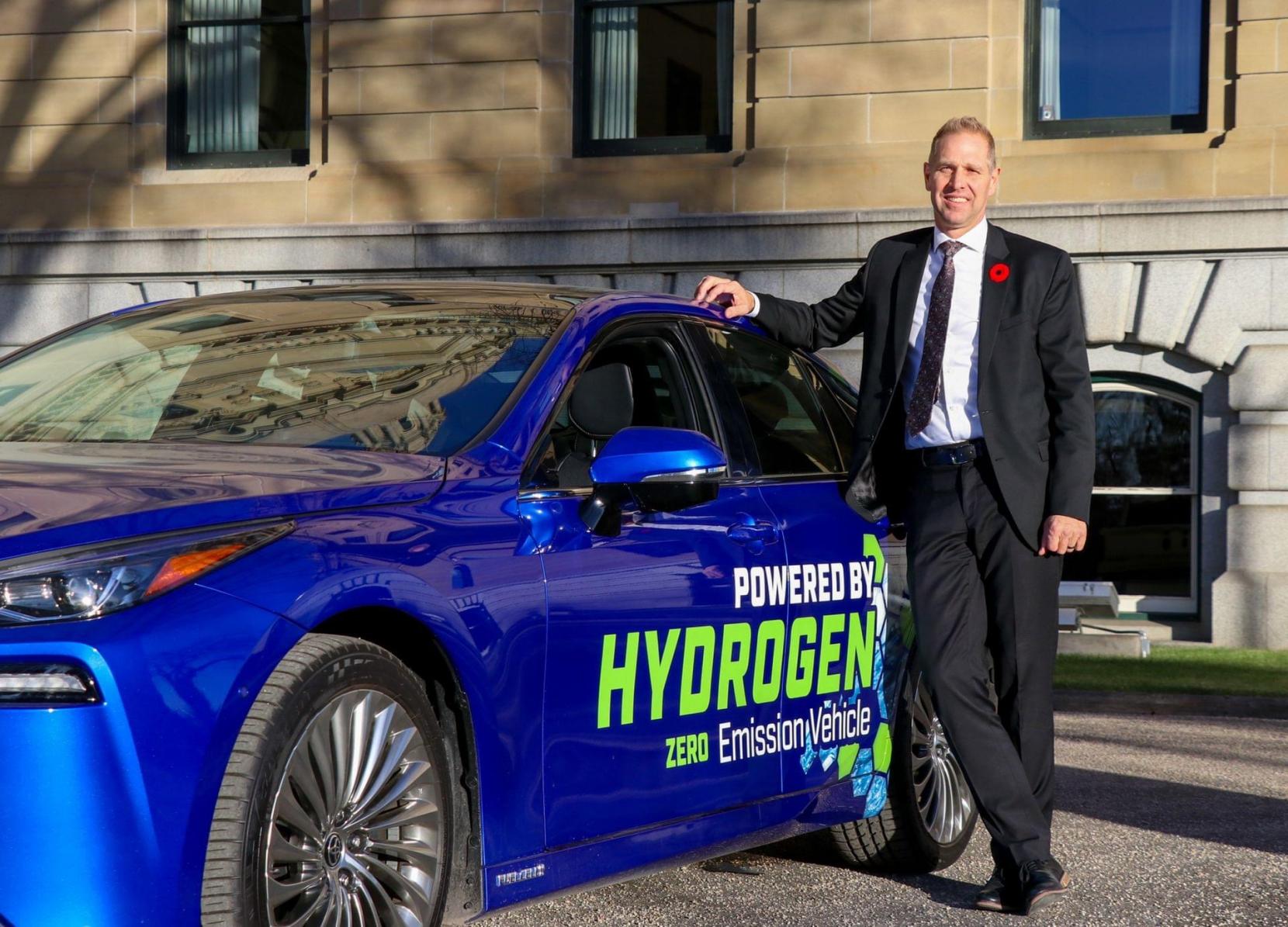
Are Hydrogen-powered Cars the Next Big Thing?
October 27, 2023Hydrogen-powered cars are making a big splash in Canada.
Earlier this year, the Edmonton International Airport (YEG) made a significant announcement, confirming its purchase of 100 Toyota Mirai hydrogen fuel cell electric vehicles (FCEVs). Part of this Mirai order has been earmarked to replace some of the airport's current vehicle fleet. The remaining FCEVs will be put to use by a variety of partners operating within the airport's ecosystem, including taxi companies, car rental services, and local municipal fleets.
In another exciting development, Toronto Pearson International Airport is poised to become the location of Ontario's inaugural public hydrogen refueling station. The Greater Toronto Airports Authority has entered into a partnership with Carlsun Energy Solutions, an engineering and contracting company, to construct this hydrogen station, catering to both light- and heavy-duty vehicles at Pearson.
More recently, Honda shared some additional information about its upcoming fuel-cell module during the 2023 European Hydrogen Week in Brussels. Created in collaboration with General Motors, this new module was initially revealed at the 2023 Tokyo auto show. The exciting news is that it's officially slated for use in North America. The debut of this innovative system in North America is set to happen in a version of the Honda CR-V, and the production is scheduled to kick off in Ohio in 2024.
Canada is actively exploring various alternative fuel options for its transportation sector. Hydrogen-powered cars have emerged as a potential game-changer, offering a clean and efficient solution that could revolutionize the way Canadians drive.
 Nathan Neudorf, MLA for Lethbridge-East and Minister of Affordability and Utilities, strikes a pose next to a hydrogen-powered car, showcasing a commitment to sustainable energy and innovation.
Nathan Neudorf, MLA for Lethbridge-East and Minister of Affordability and Utilities, strikes a pose next to a hydrogen-powered car, showcasing a commitment to sustainable energy and innovation.
How do hydrogen cars work?
Hydrogen cars work by using hydrogen gas to generate electricity in a fuel cell. This electricity powers an electric motor that drives the car. The only emission is water vapor, making these cars clean and environmentally friendly.
Benefits of using a hydrogen car:
1. Hydrogen cars don’t have to be charged
Refueling a hydrogen vehicle’s tank is as swift as filling up with gasoline. This rapid refueling capability sets hydrogen cars apart from electric vehicles, particularly when it comes to long-distance journeys.
Electric cars need a minimum of 20 minutes at a fast-charging station for a recharge. If one opts to plug their electric vehicle into a standard household power outlet, it may take several hours to regain a full charge. With a hydrogen car, there's no need to meticulously plan and allocate time for daily charging - especially during long road trips - something that continues to plague EV owners.
2. Hydrogen-powered cars offer better driving ranges
Hydrogen-powered vehicles offer better driving ranges compared to battery electric cars. While the specifics may vary depending on the model and factors like efficiency and fuel capacity, hydrogen cars, on the whole, can travel roughly 300-400 miles on a single tank of hydrogen. Only 14 electric car models can surpass the 300-mile range.
For urban commuters, especially those in large metropolitan areas, this range differential can determine whether a vehicle is capable of completing a daily round trip without needing to refuel or recharge. This extended range is essential for Canadians, who often face long distances between cities and towns.
3. Hydrogen cars are lightweight, thereby offers improved speed
Unlike electric cars, where the heaviest component is the battery, hydrogen fuel cell systems, including the hydrogen tank, are considerably lighter. This weight differential translates into a distinct advantage for hydrogen cars. With less weight to carry, the electric motor in a hydrogen vehicle requires less power to propel the vehicle.
If the same motor were to be placed in both a battery electric car and a hydrogen car, the hydrogen-powered vehicle would exhibit superior acceleration and achieve higher top speeds due to the reduced load it needs to move.
Challenges involved in manufacturing hydrogen cars:
1. Cost
Manufacturers project that by 2025, mass-produced Fuel Cell Electric Vehicles could be marketed at prices on par with their hybrid counterparts. The most significant cost component in producing these vehicles lies in the development and assembly of the fuel cell stack. In order to maintain a competitive position in the market, the fuel cells must prioritize cost optimization.
2. Infrastructure
A significant hurdle for hydrogen fuel cell cars is the insufficient infrastructure to sustain them. The scarcity of hydrogen refueling stations poses a challenge for drivers, as it can be challenging to find a convenient location to refuel.
3. Hydrogen production
Despite hydrogen being the most abundant element in the universe, it is not readily accessible in its pure form. The process of producing hydrogen gas can be energy-intensive and frequently depends on natural gas, which leads to the generation of greenhouse gas emissions.
Fuelling a sustainable future
Canada's hydrogen strategy is geared towards achieving a significant milestone: By 2050, the goal is to have 30% of end-use energy sourced from clean hydrogen. To make this vision a reality, substantial financial support is being provided. The latest budget allocates more than $17 billion in tax credits until 2035 to bolster clean hydrogen projects.
One notable example of this commitment is the partnership between the federal government and Alberta, resulting in a substantial $461-million investment in an Edmonton-based hydrogen plant. This plant, slated to commence production in 2024, stands out for its use of carbon-capture technology.
Several other projects across the country are also contributing to this clean energy vision. Atura Power is on track to have a hydrogen plant operational in Niagara, Ontario, by 2024. Similarly, the Varennes Carbon Recycling Plant in Varennes, Quebec, and HTEC's clean hydrogen facility in Vancouver are working diligently to go online by 2025.
Even in Manitoba, early-phase initiatives are underway, with one project aiming to begin production by the end of the year. These developments underscore Canada's commitment to advancing clean hydrogen and meeting its ambitious energy targets.
Canada has shown interest in hydrogen-powered cars as part of its efforts to combat climate change and meet its emission reduction targets. However, widespread adoption faces hurdles in terms of cost, infrastructure, and energy efficiency. While it's unclear if hydrogen-powered cars will become the next big thing in Canada, they certainly have the potential to play a substantial role in the country's transition to a more sustainable and eco-friendly transportation system.
JOIN THOUSANDS OF OTHER HAPPY CANADIANS
